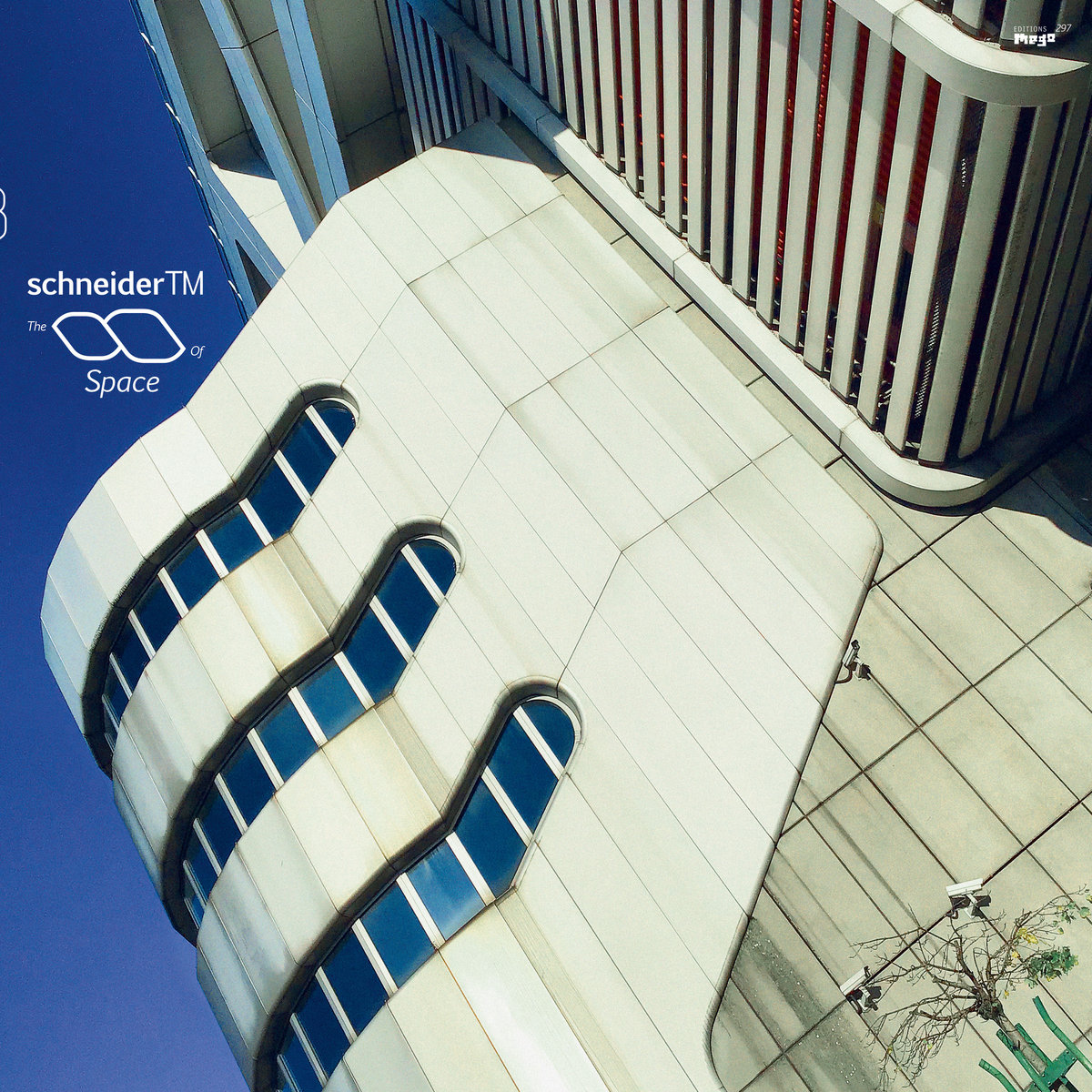Dirk Dresselhaus bringt im 25. Jahr seines Projektes Schneider TM ein neues Album heraus. Das auf einer Vielzahl an akustischen und elektronischen Klangquellen und zahlreichen Bearbeitungsschritten basierende “Pop”-Album “The 8 Of Space”, das unter Mitwirkung von Michael Beckett (Kptmichigan) und Tomoko Nakasato entstand erscheint am 9. April als CD und LP bei Editions Mego. Ein Jubiläumskonzert findet am 30. Juni im Kesselhaus der Berliner Kulturbrauerei statt.
“The 8 Of Space champions the classic album format with connected tracks that act like chapters adding up to what could be framed as an ‘audio-movie’. The ‘plot’ revolves around a post-dystopian landscape which posits the make up of reality in the future. The vessel is electronic pop music but one which takes inspiration from the spirit of a multitude of musical forms absorbed into a trans human sound world where biological & technological elements complement each other (We are NOT The Robots!). The music unifies the analog world of acoustic and electric instruments with electronic & digital possibilities that range from heavily processed acoustic & electric guitars and bass, tube organ, analog modular synth units, acoustic drums and percussion, analog & digital drum machines & effect units, hardware and software processing. Experimental & extended musical techniques build a world of musical elements that is sometimes upside down and mirrored. Electric guitar becomes rhythm machine & modular system, voice becomes sound object & synthesizer, effects are used as instruments, acoustic guitars are being modulated by voices etc. Reality and illusion are getting mixed up. One can hear short moments of longer recordings in the tracks which are snapshots of bigger musical pictures that lurk behind what’s actually audible. Generative music, audio spirals like clockworks create ever changing musical combinations; thrown-in sounds, polyrhythms & cascades based on the concept of chance attributed to the service of the SONG. The lyrics are a key component. Holistic, associative poetry acts as interactive trigger points for the mechanisms of existence in times of a paradigm shift that are open to the listeners discretion. Autobiographical elements combine with science fiction and dreams, protagonists shift where the ‘I’ or ‘me’ is not necessarily the voice of the artist, nor even the same person. Alongside a more naturalised voice another protagonist appears represented by a processed voice. This character, named iBot, evolved around the start of the millennium and has appeared on some previous Schneider TM recordings. It can be seen as a post-human, or even a trans-human character, a combination of human & technology, uncertain of the future, which lends iBot its melancholic tone.” (Editions Mego)
